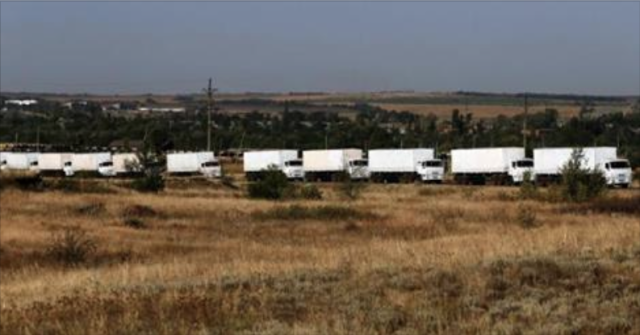The Russian government has in effect stopped fighting the spread of HIV/AIDS and as a result, the number of HIV infected people in the Russian Federation is rising by ten percent a year, according to Academician Vadim Pokrovsky, head of the Federal Center for the Prevention and Struggle with AIDS.
In an interview to Natalia Chernova published in “Novaya gazeta,” Pokrovsky says that there were more than 90,000 new cases last year and that by the end of this one, he expects there will be one million people in Russia registered as being HIV infected, a horrific development Moscow is doing little now to counter.
And the actual number, the medical specialist says, is much higher, perhaps seven times higher. Moreover, Pokrovsky continues, last year alone 190,000 Russians died from AIDS or AIDS-related diseases.
Just over half of those contracting HIV now, he says, do so as a result of illegal drug use, but what is of particular concern is the dramatic rise in the number of those who become ill with this disease as a result of heterosexual contacts. That means that the disease is spreading into groups that seldom had cases before.
In Russia today, Pokrovsky says, “about 20 percent of all drug users are infected” with HIV/AIDS. The average male drug user typically has up to 20 sexual partners, while the average female one, who often supports her habit via prostitution, may have “hundreds.” Consequently, Russians are being infected indirectly by their sexual partners who have slept with drug abusers.
And unlike in earlier years, he says, the virus is spreading via blood transfusions as well as “from mother to child and from child to child in hospitals.”
According to Pokrovsky, Russians today “are now at the edge of a generalized epidemic” like those which have hit portions of sub-Saharan Africa. That term applies when more than one percent of the population is infected – or, perhaps better, “when more than one percent of pregnant women are infected.”
In Russia now, more than one percent of pregnant women are infected with HIV in 15 regions. In Samara, for example, the figure is about three times that.
Because most women become infected via sexual contact while men still are more likely to be infected by the sharing of needles, the greatest risks for the spread of the infection are among younger age groups. Among Russians now, three percent of the men between 30 and 35 are officially infected, with two percent in the 25-30 and 35-40 age cohorts.
Those are official figures, Pokrovsky says. The real numbers are at least twice as high.
Increases in the number of HIV infections is already pushing up mortality rates in Russia, the specialist says. In 2013, about 20,000 people died from the disease; last year the number was “about 25,000.” And Rosstat suggests that the growth of deaths from this disease alone will grow by 20 percent annually in the coming years.
Much more could be done to prevent the spread of the disease, he says, including widespread use of condoms. But many in the government, influenced by the Russian Orthodox Church, oppose their use. And in the provinces, many doctors put off diagnosis and treatment of those infected with HIV/AIDS hoping that things will get better.
Treatment is becoming less expensive, but it is not a panacea, Pokrovsky says; and he adds that there is no cure on the horizon.
Many in Russia believe that promoting traditional values will be sufficient to end the spread of AIDS. But that is nonsense. On the one hand, many people will continue to do what they can and want to do regardless of what they are told. And on the other, there are officially one million sex workers in Russia, with their consumers numbering five to ten times more.
Pokrovsky has been attacked by Moscow city officials for the numbers he has released and called “a foreign agent.” What those officials objected to was his pointing out that the city government had artificially lowered the actual number of HIV infections there by counting only those with a Moscow residence permit – and ignoring all others actually there.
Russian public health services had been making some progress against HIV/AIDS until 2011. Then, Pokrovsky says, “the state distanced itself from this problem.” It disbanded the government commission on HIV and indicated that the best way to fight the disease is by moral exhortation rather than any other way.
The tragic results of that approach, the expert says, have not been long in coming.








